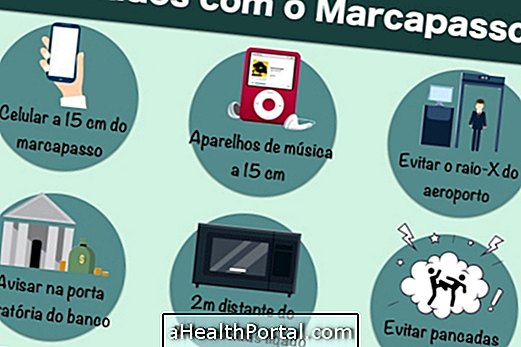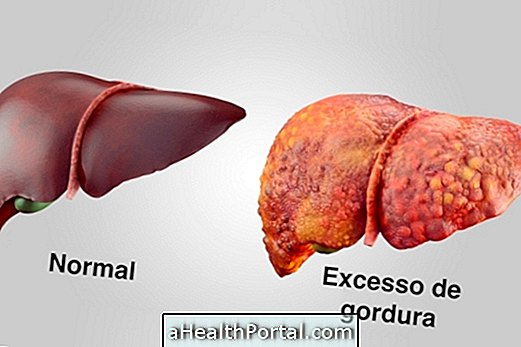AIDS transmission can occur during pregnancy, childbirth, or breastfeeding, so what the HIV positive pregnant woman should do to avoid contamination of the baby includes taking the medications prescribed by the doctor, delivering a cesarean section and not breastfeeding the baby.
Here is some useful information about prenatal care and delivery for women with HIV.

How is the pregnant woman with HIV prenatal?
The prenatal care of pregnant women with HIV + is slightly different, requiring more care. In addition to the tests usually performed during pregnancy, your doctor may order:
- CD4 cell count (every trimester)
- Viral load (every quarter)
- Hepatic and renal function (monthly)
- Hemogram (monthly)
These tests are important because they aid in the evaluation, staging, and indication of the antiretroviral regimen, and can be performed at referral centers for AIDS treatment. In patients diagnosed with HIV before pregnancy, these tests should be ordered as needed.
All invasive procedures such as amniocentesis and biopsy of the chorionic villus are contraindicated because they increase the risk of infection of the baby and therefore in cases of suspected fetal malformation, ultrasound and blood tests are the most indicated.
The vaccines that can be given to HIV + pregnant women are:
- Tetanus and diphtheria vaccine;
- Hepatitis A and B vaccine;
- Flu's vacine;
- Vaccine against chicken pox.
Viral triple vaccine is contraindicated in pregnancy and yellow fever is not indicated, although it may be administered in the last trimester in case of extreme need.
Treatment for AIDS in pregnancy
If the mother still does not take HIV medicines, she should start taking between 14 and 28 weeks of gestation with the ingestion of 3 oral remedies. The drug most commonly used for the treatment of AIDS during pregnancy is AZT, which decreases the risk of infection of the baby.
When a woman has a high viral load and low CD4 count, treatment should not be continued after delivery to prevent the woman from developing serious infections such as pneumonia, meningitis or tuberculosis.
Side effects
Side effects caused by AIDS medications in women during pregnancy include decreased red blood cells, severe anemia and liver failure. In addition, there may be an increased risk of insulin resistance, nausea, abdominal pain, insomnia, headache and other symptoms that should be reported to the doctor so that the antiretroviral regimen can be checked because in some cases it may be necessary to change the combination of medicines.
Apparently the drugs do not negatively affect babies, although there are reports of low birth weight or preterm birth infants but could not be related to the mother's use of the drugs.

How is delivery?
The delivery of the pregnant woman with AIDS should be elective caesarean section at 38 weeks of gestation so that AZT can run in the patient's vein for at least 4 hours before the baby's birth, thus reducing the chance of vertical transmission of HIV to the fetus.
After delivery of the pregnant woman with AIDS, the baby should take AZT for 6 weeks and breastfeeding is contraindicated and a formula of powdered milk should be used.
How to know if your baby has HIV
To know if the baby has been infected with the HIV virus, three blood tests should be performed. The first should be done between 14 and 21 days of life, the second between the 1st and 2nd month of life and the third between the 4th and 6th month.
The diagnosis of AIDS in the baby is confirmed when there are 2 blood tests that test positive for HIV. See what can be the HIV Symptoms in the baby and also How to care for the baby with HIV.
AIDS medicines are provided free of charge by the SUS as well as the milk formulas for the newborn.






















